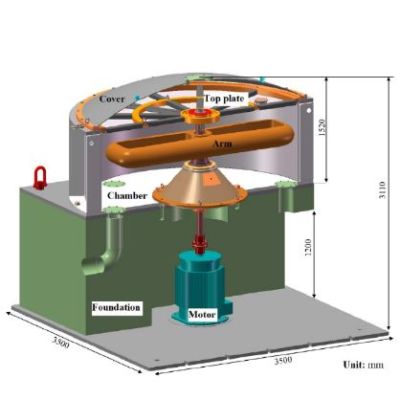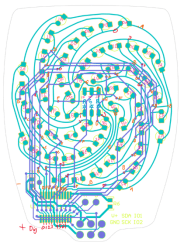
Recently China’s new CHIEF hypergravity facility came online to begin research projects after beginning construction in 2018. Standing for Centrifugal Hypergravity and Interdisciplinary Experiment Facility the name covers basically what it is about: using centrifuges immense acceleration can be generated. With gravity defined as an acceleration on Earth of 1 g, hypergravity is thus a force of gravity >1 g. This is distinct from simple pressure as in e.g. a hydraulic press, as gravitational acceleration directly affects the object and defines characteristics such as its effective mass. This is highly relevant for many disciplines, including space flight, deep ocean exploration, materials science and aeronautics.
While humans can take a g-force (g0) of about 9 g0 (88 m/s2) sustained in the case of trained fighter pilots, the acceleration generated by CHIEF’s two centrifuges is significantly above that, able to reach hundreds of g. For details of these centrifuges, this preprint article by [Jianyong Liu] et al. from April 2024 shows the construction of these centrifuges and the engineering that goes into their operation, especially the aerodynamic characteristics. Both air pressure (30 – 101 kPa) and arm velocity (200 – 1000 g) are considered, with the risks being overpressure and resonance, which if not designed for can obliterate such a centrifuge.
The acceleration of CHIEF is said to max out at 1,900 gravity tons (gt, weight of one ton due to gravity), which is significantly more than the 1,200 gt of the US Army Corps of Engineers’ hypergravity facility.


















